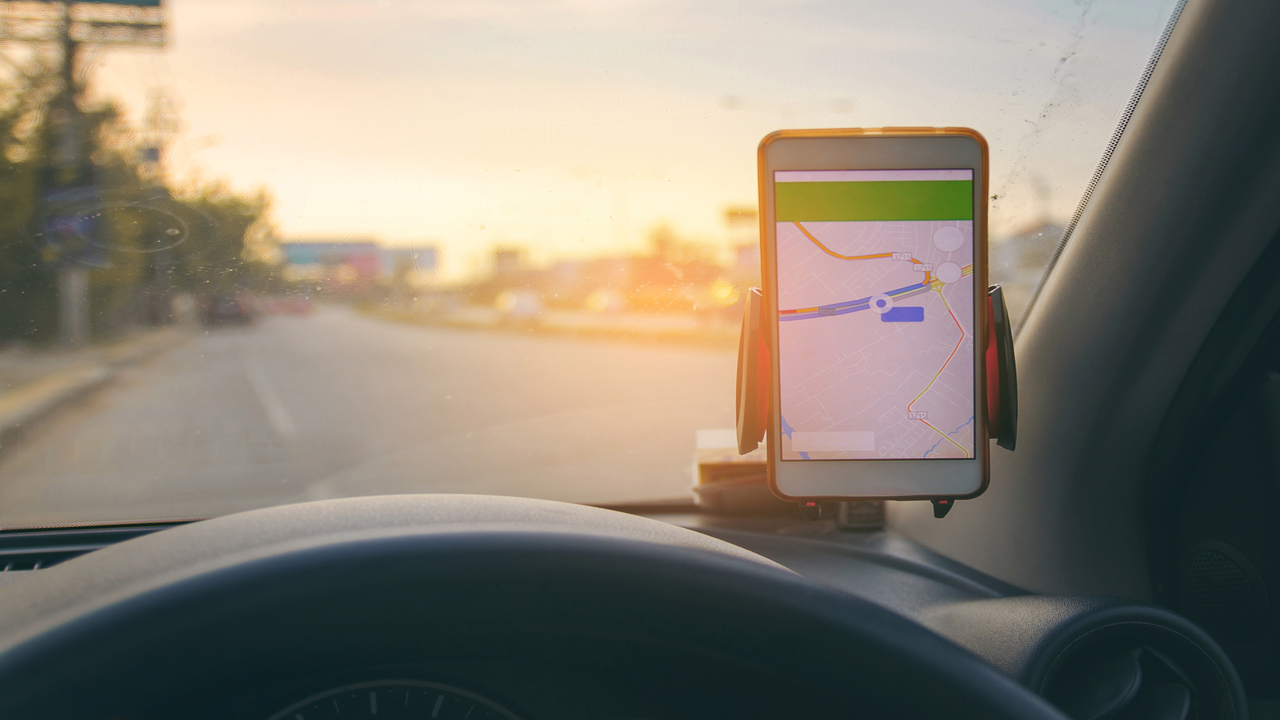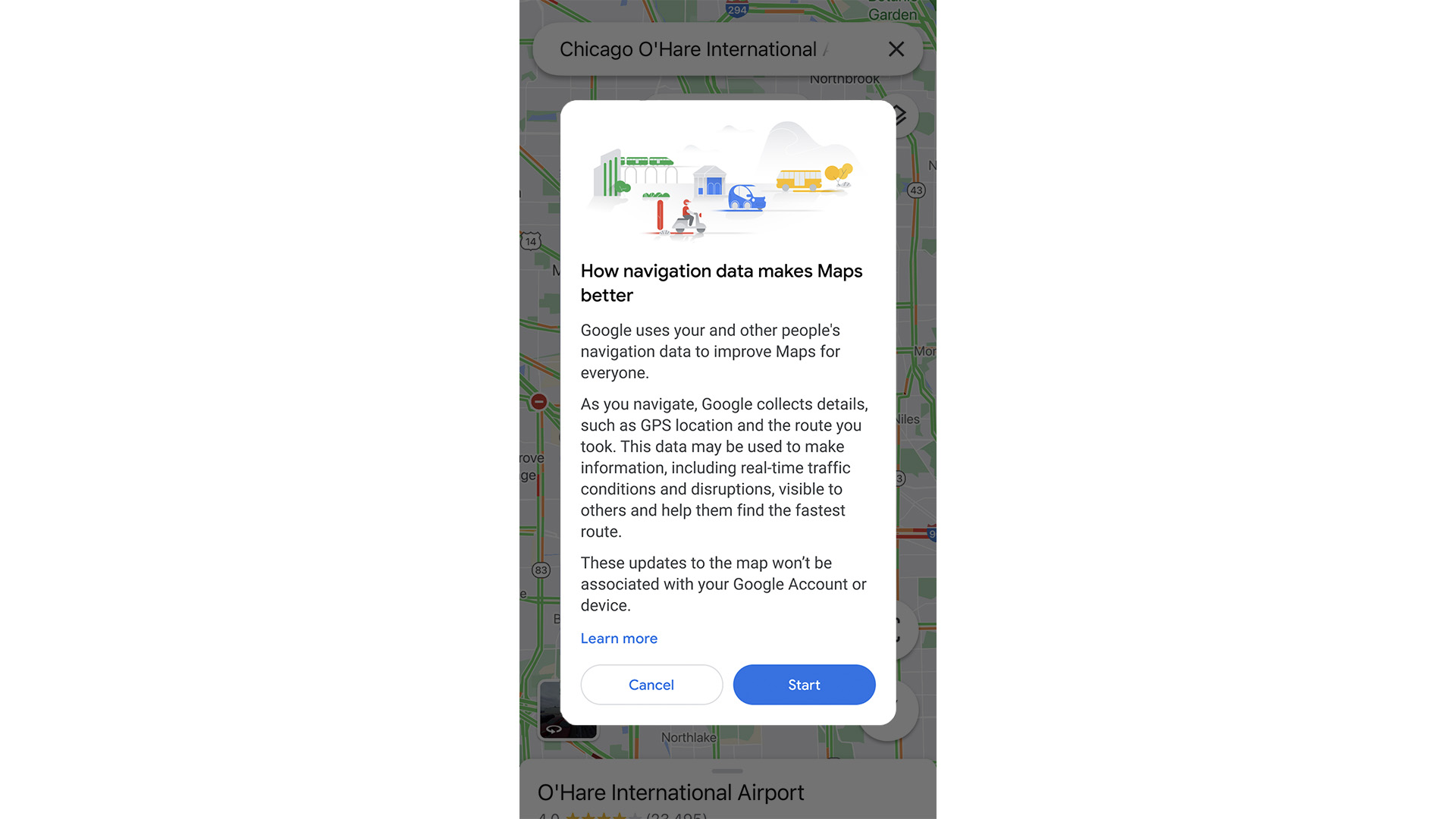Google Maps will make you share your data to get directions
A new prompt in Google Maps requires you to crowdsource your data to improve accuracy in return for its turn-by-turn directions


Google Maps is rolling out a new prompt on Android and iOS apps that asks you to approve that your GPS data and route be used to help provide real-time traffic data for other drivers. This form of crowdsourcing is not unusual for traffic data and the popular community-based mapping app Wayze (now owned by Google) relies on it.
Crucially, the message states that this data won’t be associated with your Google account, your Google Maps Insights or device, so cannot be tied back to you. But to make this change Google needs your permission to collect the information.
What is interesting here is that Google is giving a take-it-or-leave-it approach to the data collection. If you don’t approve the terms, you’re not able to see the turn-by-turn information. While in theory, Google could have made this optional, the accuracy of the data relies on a large number of people adding to it.
- Third Android Auto update rolls out this month as Google accelerates its release schedule
- Android Auto's main problem is fixed with this tiny device
- iPhone 13 – 6 reasons I know I’ll buy one even though I’ve got an iPhone 12

Crowdsourced traffic data stands a much better chance of providing up to date traffic information than one that relies on accident reports or road closures. Changes in traffic speed or stationary traffic can be detected almost instantly, so that those even a few junctions back can get the information in time to reroute.
In this regard, it really is in everyone’s interest to approve the data request, as the data could help you in the long run. And in that regard, it’s fair enough that those who don’t participate, don’t get to enjoy the benefit.
According to Google 9 to 5, who originally published the news, users that click cancel will instead only see the directions in a list form and not provided live along your route. This means that if you want to continue to use Google Maps for your driving directions, you have to take part in the crowdsourcing.
Get all the latest news, reviews, deals and buying guides on gorgeous tech, home and active products from the T3 experts

As T3's Editor-in-Chief, Mat Gallagher has his finger on the pulse for the latest advances in technology. He has written about technology since 2003 and after stints in Beijing, Hong Kong and Chicago is now based in the UK. He’s a true lover of gadgets, but especially anything that involves cameras, Apple, electric cars, musical instruments or travel.